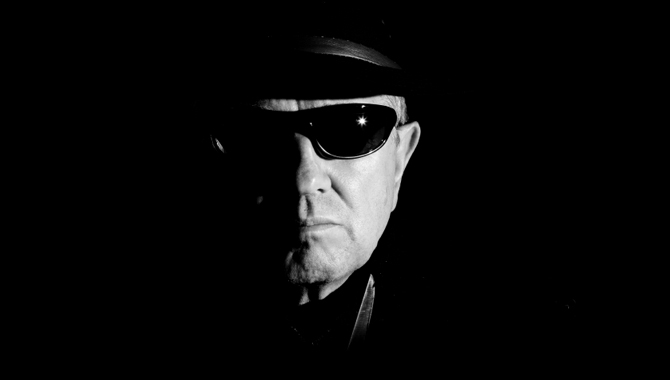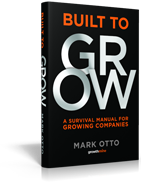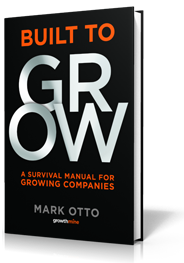
Paranoia is Good for Business

Successful growth companies have a healthy paranoia about their success. They know that competitive advantage deteriorates over time unless it is constantly cultivated and reinforced. And these companies are seriously concerned with future threats to their continued success.
But far too often, once “hot” companies cool off because they are too focused on harvesting their success to notice the world is changing around them.
Changing World
Time and time again I’ve seen businesses sow the seeds of their own destruction by reaching the pinnacle of success.
It happens when a company claws its way to the top, beats the competition, and achieves extraordinary growth and success – then disaster strikes.
The leaders begin to believe that they are invincible. After all, the headlines tell them so. Everything they touch seems to turn to gold. They believe they have found the formula for lasting growth and success. They believe they know what the market wants better than the market itself. They believe their past success and scale insulate them from the impact of a changing world.
And then one day they wake up to find that they are wrong, and it’s too late to do anything about it
Business History
It happened to the local stores that dominated the landscape for decades, until Walmart came to town. It happened to the great railroads that failed to become great airlines. It happened to Motorola mobile phones when Nokia came along, it happened to Nokia when Blackberry came on the scene, and it happened to Blackberry when Apple introduced the iPhone.
Kodak dominated photography for almost 100 years. Even though it invented the digital camera, Kodak stayed committed to film. Digital cameras put film cameras, and Kodak, in the history books.
Xerox invented photocopying, but it also invented the predecessor to the personal computer. Xerox was too busy making money in the copying business to see the potential of the personal computer.
People running these companies needed to be paranoid about what was happening around them.
Healthy Paranoia
On the one hand, smart leaders know that they are operating in an environment of constant uncertainty and acknowledge that they cannot control or accurately predict major facets of the world around them. On the other hand, smart leaders refuse to accept that outside forces or random events will determine their destiny. They accept responsibility for their own fate.
Enduring companies maintain great awareness of the threats and changes in their environment, even when – particularly when – everything appears to be going well. They assume that conditions will turn against them, without warning, at perhaps the worst possible moment. And they know they have to be prepared. They channel their fear and worry into preparation and action – in other words they demonstrate healthy paranoia. They develop contingency plans, create safeguards, build cash reserves, manage risks, increase margins of error, and continually innovate.
Healthy paranoia keeps companies alive.
What differentiates enduring companies isn’t paranoia per se, but how they take effective action as a result.
Smart leaders are confident and appreciate their past accomplishments, but they are almost neurotic in their obsession with what can go wrong. They succeed when trouble appears because they have deliberately, methodically, and systematically prepared for it by continuously asking, “What if?”
This level of vigilance allows leaders to understand what the worst-case scenario is and how to prepare for it. They know what’s in their control and what needs to be done to mitigate their exposure to forces they can’t control.
Henry Ford once rode atop the early days of the auto industry, until Ford was passed by GM. Growth leaders live in fear that their very success might foreshadow possible trouble. Smart leaders demonstrate a healthy dose of paranoia all the time, no matter how successful they become.
Healthy paranoia isn’t just about avoiding disaster. Great growth companies pursue great objectives. They aren’t worried about protecting what they have, but rather creating and building something that will last well into the future.
A Final Thought on Paranoia
The best leaders display healthy levels of paranoia because they know that how their companies perform in bad times is dependent on how it performs in good times.
You have to be optimistic if you are going to build a great company, but you have to be realistic about a changing world. Smart leaders have a strong dose of paranoia, and they translate it into preparation.
It’s the things you do before times are tough that’s the critical point. It’s what you do before you’re in trouble. It’s what you do before difficult times. It’s how you manage in good times, so that you can be strong in bad times. It’s malpractice if you are only strong when things are good.
Turbulent times will come. When a disruptive event devastates an industry or cripples the economy, companies end up with one of three fates: they move ahead, they fall behind, or they die. The disruption itself does not determine your fate. You do.
How much time before your business faces a fundamental shift?





